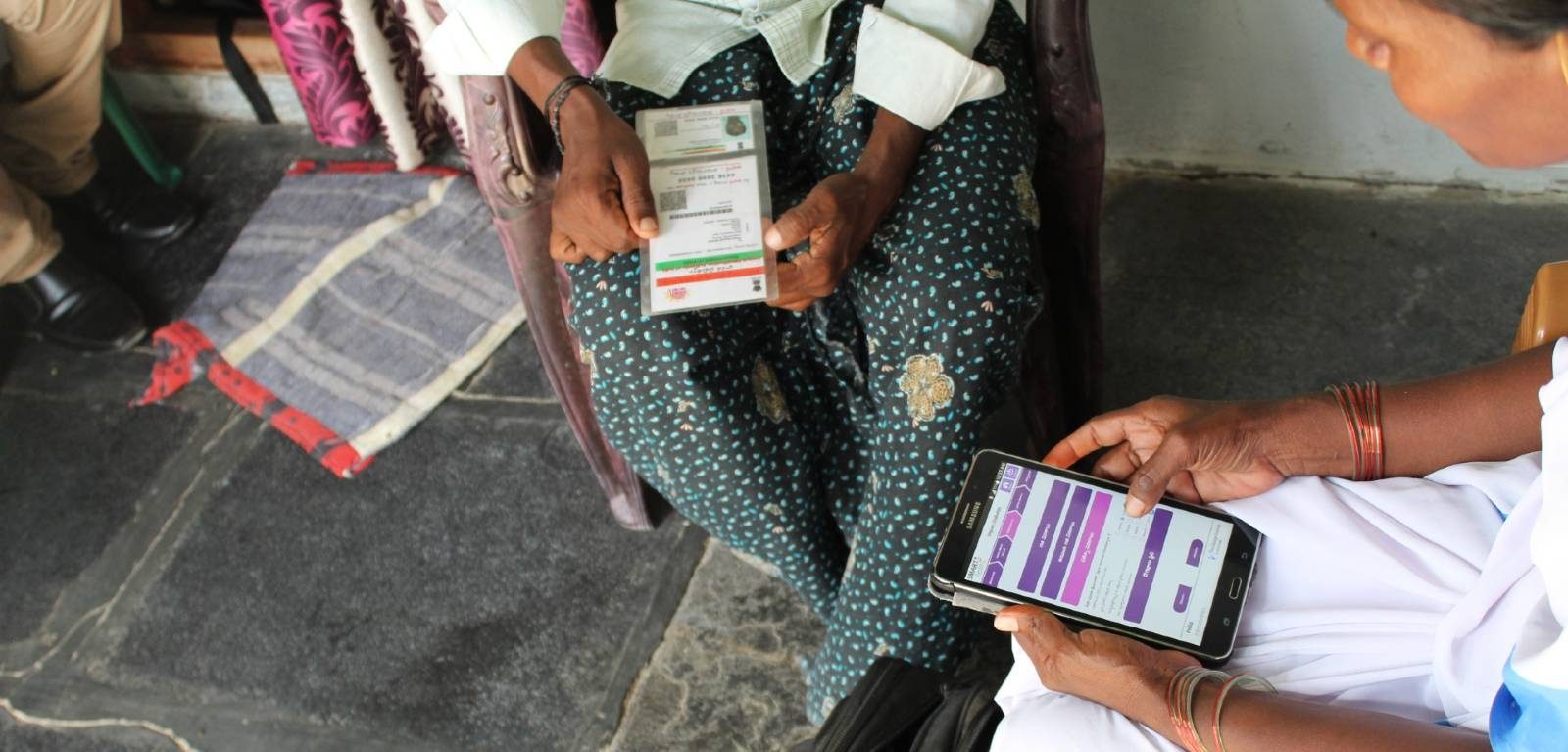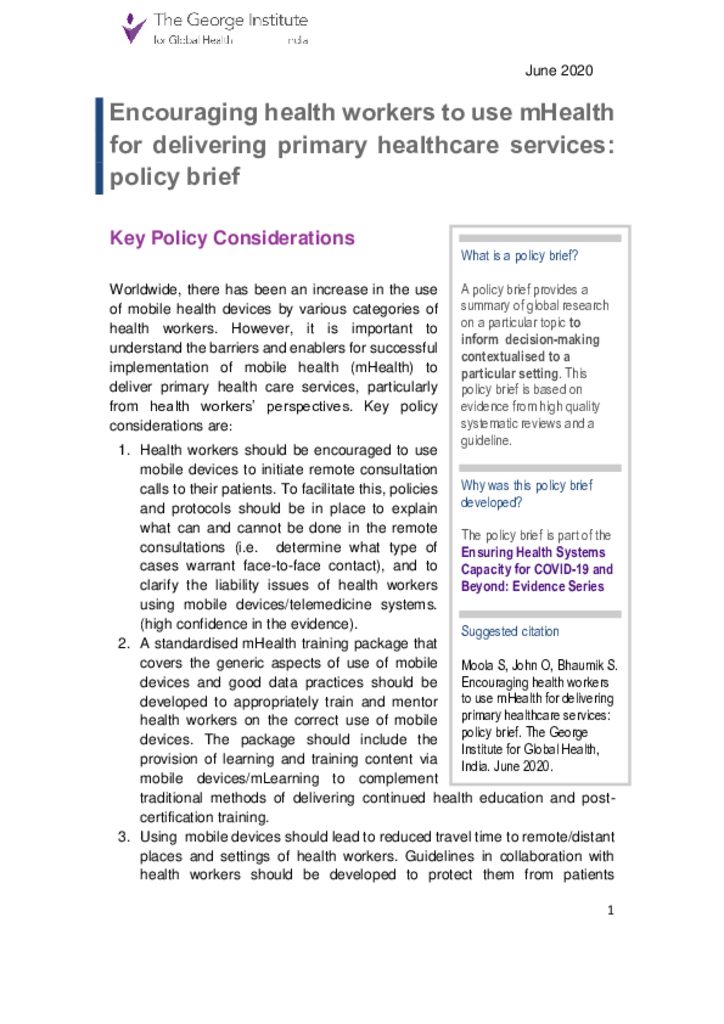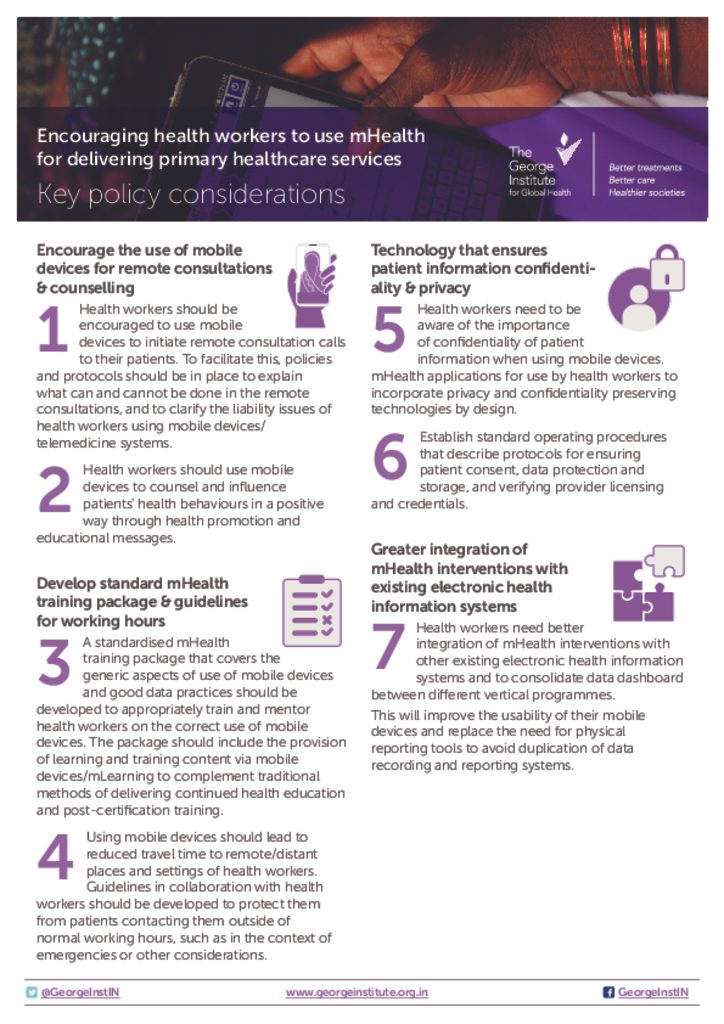
Encouraging health workers to use mHealth for delivering primary healthcare services: policy brief
The Ministry of Health and Family Welfare (MoHFW), Government of India had released a guidance note which identified the use of telehealth platforms to deliver essential medical services for non-COVID health conditions. The WHO guideline on digital interventions for health system strengthening recognises Mobile Health (mHealth) as an effective means to support such service delivery. It minimises patient-provider contact, thus ensuring physical distancing. mHealth involves the use of mobile devices such as smartphones, patient-monitoring devices, personal digital assistants, and tablets to support public healthcare practices. It could be used effectively by healthcare workers to deliver health services to patients remotely and improve overall communication with co-workers, patients and decision makers. It is important to also outline challenges and enabling factors to adoption of mHealth for delivering healthcare services from health workers’ perspective.
This policy brief summarises evidence on barriers and enablers to the use of mHealth for delivering primary healthcare services by health workers.
Key policy considerations are:
- Health workers should be encouraged to use mobile devices to initiate remote consultation calls to their patients. To facilitate this, policies and protocols should be in place to explain what can and cannot be done in the remote consultations (i.e. determine what type of cases warrant face-to-face contact), and to clarify the liability issues of health workers using mobile devices. (high confidence in the evidence).
- A standardised mHealth training package that covers the generic aspects of use of mobile devices and good data practices should be developed to appropriately train and mentor health workers on the correct use of mobile devices. The package should include the provision of learning and training content via mobile devices to complement traditional methods of delivering continued health education and post-certification training.
- Using mobile devices should lead to reduced travel time to remote/distant places and settings of health workers. Guidelines in collaboration with health workers should be developed to protect them from patients contacting them outside of normal working hours, such as in the context of emergencies or other considerations. (high confidence in the evidence)
- Health workers need to be aware of the importance of confidentiality of patient information when using mobile devices. mHealth applications for use by health workers to incorporate privacy and confidentiality preserving technologies by design. (high confidence in the evidence).
- Health workers should use mobile devices to counsel and influence patients' health behaviours in a positive way through health promotion and educational messages. (moderate confidence in the evidence)
- Health workers need better integration of mHealth interventions with other existing electronic health information systems and to consolidate data dashboard between different vertical programmes. This will improve the usability of their mobile devices and replace the need for physical reporting tools to avoid duplication of data recording and reporting systems. (moderate confidence in the evidence)
- The use of mobile devices to record routine patient or surveillance data is helpful for decision making. Ensure mechanisms for documenting and tracing past exchanges and decisions made during consultations.
The report provides a summary of evidence from two systematic reviews and a WHO guideline on digital health interventions.
Download full report (PDF 303 KB)
This report is a part of the Ensuring Health Systems Capacity for COVID-19 and Beyond: Evidence Series. The series aims to provide high quality and contextualised evidence from systematic reviews or rapid evidence synthesis to work on the opportunity the COVID-19 scenario offers i.e., to build a strong, resilient and equitable health system in India and other low-and-middle income countries (LMICs).





